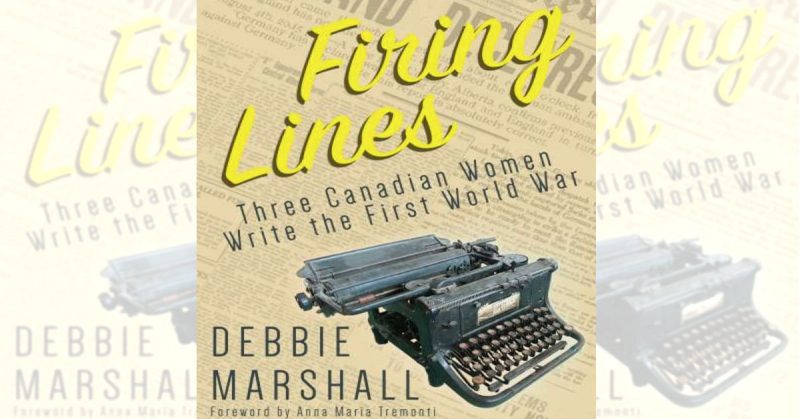Women were a rarity on the front lines during World War Two except possibly for three who went as war correspondents.
Elizabeth Montizambert, Beatrice Nasmyth, and Mary MacLeod Moore were journalists and suffragettes, who wished to open doors for women in their occupation.
They also brought a definite female perspective to writing about combat, and its effects on soldiers.
Debbie Marshall, author of Firing Lines: Three Canadian Women Write the First World War said they had a genuine rapport for the men. They paid attention to intimate details such as how they were doing and their feeling of loneliness while overseas. And they would be privy to the distasteful sides of war. Men trusted them.
As the war progressed, as they conversed with more soldiers, the tone of their reporting varied as well.
Nasmyth, like any good reporter, went to great lengths to smuggle stories back to Canada and bypassed the censors who would have removed anything that put the war effort in a negative light.
As the war moved along, the patriotic spirit was dulled, Marshall explained. She thinks everyone began to have the realistic view that war was not a heroic thing with the British Empire riding in and rescuing the day, CBC Radio reported.
A century after the war, Marshall wants to ensure these three women who were out there writing these astounding stories are not forgotten by history.
They had large audiences; now we know very little about them, she said.
